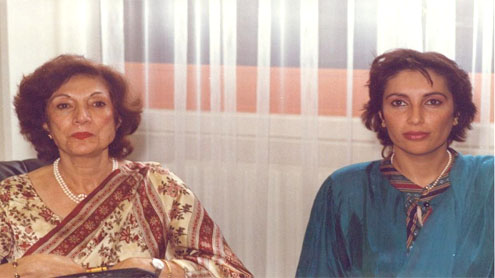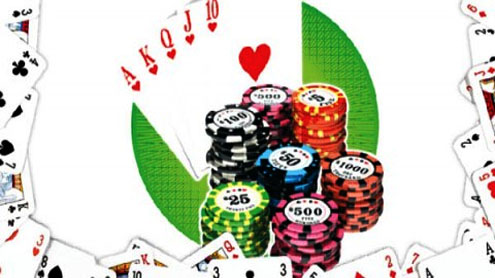 In recent years, she had faded away so much from the scene and from the memory that her death actually was a reminder of sorts that she had been alive all these years, though suffering from Alzheimer’s and in a comatose state.
In recent years, she had faded away so much from the scene and from the memory that her death actually was a reminder of sorts that she had been alive all these years, though suffering from Alzheimer’s and in a comatose state.
Born in Iran, died in Dubai, buried in Naudero (the story of her roller-coaster ride life), but, in between, her most eventful years, the ones she would be remembered for ever, were spent in Pakistan.She epitomised charm and elegance till the very end of her active public life. But her tragic persona would always be remembered for ‘grace under pressure’ when her husband was eliminated in what is now universally regarded as judicial murder, defiance of a brutal dictator, keeping the PPP intact in relentless struggle for democracy, deftly realigning the political adversaries in a common bandwagon against Zia and then braving the grief of murder of her two sons, and later her eldest daughter (though such was her condition that whether it registered at all is a point of conjecture – a small mercy if it actually didn’t).
This in a nutshell is the story of her life – and times. Married to a cosmopolitan, sophisticated citizen of the world, described as ‘most intelligent, most brilliant’ by the US secretary of state Henry Kissinger. Wife of Pakistan’s foreign minister, later president and prime minister, but more importantly the one whose charisma and popular appeal surpassed by some distance any Pakistani politician save the Quaid-e-Azam. And some years down the road, the mother of the first woman prime minister of the Muslim world. Some mother and some daughter!
These were the sparkling moments. A considerable part of later life (34 years out of 82 to be exact), were interspersed with happy moments only sparingly – as it was mostly blighted by tragedy and adversity. Yet it brought out the best in her.While many politicians grovelled before that impostor Gen Zia, Nusrat (literal meaning, triumph) alone carried on the flame, refusing to submit and remaining a relentless nemesis till the very end (his!).The role of protector of her offspring in the aftermath of ZAB’s overthrow and hanging, the desertion of many ‘uncles’ of a raw and untested heir apparent in Benazir Bhutto, and the implacable enmity of the reactionary forces would have broken the strongest spirit. But she never faltered, her head was ‘bloody but unbowed’.
Jalib’s immortal line, Dartay hain bandooqun waalay ek nihatee larkee say (See, how the boots are afraid of an unarmed girl) was said about Benazir, but, I am sure in my mind that it first and equally applied to Nusrat.In those years of repression, the likes of which had never been seen before or since (thankfully for small mercies) in these parts, public flogging of the party workers, journalists and others who did not toe the line, self-immolations, and consigning of protesters to long prison terms and unimaginable tortures, hers was the only defiant voice. She remained a source of inspiration not only for the diehard jiyalas but for all those in whom the flame of freedom and democracy remained undimmed in all those Zia years.This Faiz couplet typically soft in texture but carrying the message with such vigour,
(Gather round, friends, keep akindle this forlorn flame Low may be ‘tis light, but ’tis still aglow)was about Nusrat Bhutto in those early 1980s, in the early days of the struggle against dictatorship that at the time seemed like a tunnel without any light at the end.(If Zia, I believe, ever got a momentary reprieve from whichever pit of hell he was consigned to, it would be because his tyranny produced the loathing that in turn created such sublime poetry).
She saved both the physical PPP and its underlying populist, pro-downtrodden, liberal, populist philosophy. It was because of this torch-bearer who never wavered that the PPP not just kept its identity intact but remained united in the face of sticks and carrots. And, what is more, the sacrifices of the rank and file of the PPP for democracy and human rights never allowed Zia to don the cloak of legitimacy even after the 1985 elections.
(The PPP boycotted that election, but that was Benazir’s decision. It may have denied the exercise much-craved for credibility but allowed space to other political actors who did not vacate it when the PPP returned for the post-Zia 1988 elections – thus making Benazir regret the decision and vowing never to repeat it).The posthumous decoration of the lady with the iron will as ‘Mother of Democracy’ is apt by the current PPP dispensation. And no political force in the country has either grudged or disagreed with it – which means that while she would have a very special place for the PPP cadres, she also commands universal respect.And nothing could bring it in sharper relief that this is the quality that Asif Ali Zardari and his coterie lack.
The PPP under Zardari looks politically dexterous and manipulative. It has adroitly managed to place itself at the top of the greasy totem pole. And it may remain there if it achieves its ambition of completing its tenure and going into the next elections under its terms – with its man in the presidency, and a majority in the Senate, shepherding it and the allies to another success at the hustings.But the political storm is gathering, and this PPP government doesn’t have much on its scorecard. The public disenchantment and anger over lack of good governance and the cries of chicanery are far too many now to ignore.
Zardari and his clique has survived and prospered in this post-Benazir period, leaving many a crystal ball pundit huffing and puffing. With Imran Khan and Nawaz Sharif tearing at each other, it may garner enough votes to romp home again. But as it mourns and celebrates at the same time one of its stellar leaders, it needs to spare a moment and mull over the consequences of dismal performance and its present sorry image. – PT












